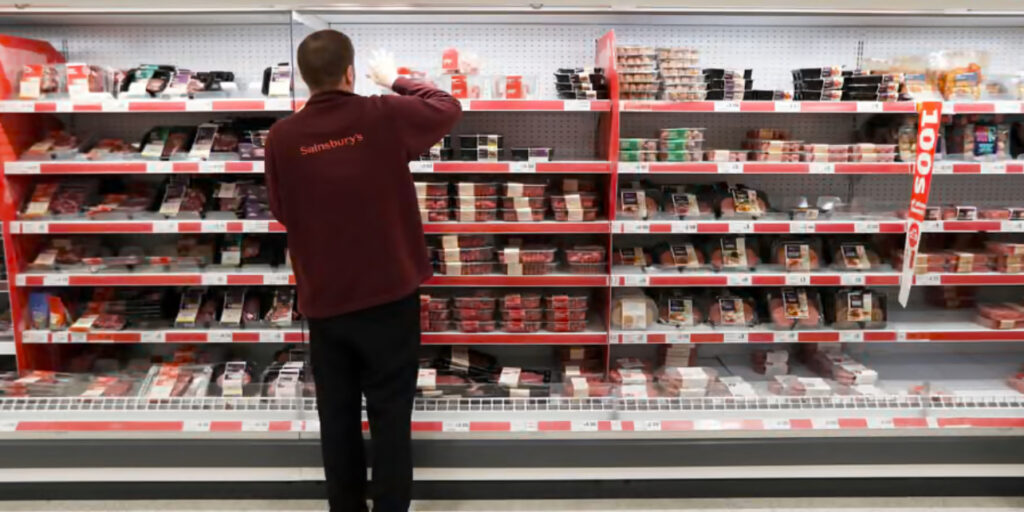Sainsbury’s has warned that it does not expect a rise in profits this year, as the UK’s fiercely competitive supermarket landscape heads into a potential price war and rising operational costs weigh heavily on the sector.
Despite reporting a strong performance for the year ending 1 March, with underlying operating profits reaching £1 billion and pre-tax profits rising by 38.6% to £384 million, the retailer is bracing for a challenging year ahead.
The company joins major names like Tesco, M&S and Next as one of the few British retailers to hit the £1bn profit mark, but it doesn’t anticipate surpassing this figure in the current financial year.
Chief executive Simon Roberts said Sainsbury’s remains committed to maintaining its competitive edge, particularly against rivals such as Asda, which has announced plans to cut prices in a bid to reclaim market share. “We are absolutely focused on offering great value to our customers,” Roberts said, reaffirming the brand’s investment of £1bn in price reductions over the last four years.
However, rising business costs are expected to eat into margins. Increases to the minimum wage, higher national insurance contributions, and new packaging regulations are all contributing to upward pressure on prices, which Roberts warned would ultimately feed into inflation.
While closely monitoring external risks such as US tariffs, Roberts added that the industry has become more resilient to supply chain challenges following disruptions sparked by the Covid-19 pandemic.
The retailer has outlined plans to cut £650 million in costs over the next two years, after already delivering £350 million in savings last year. Part of this will come from automation and warehouse closures, including shutting two of its five non-food warehouses—a move that could affect over 1,400 jobs. Sainsbury’s expects to save £70 million annually from these closures.
A further £70 million in savings will come from improvements to self-service tills and technology designed to reduce theft. Currently, 70% of transactions are processed through self-checkouts, compared to just 40% five years ago.
Despite cost pressures, Sainsbury’s is pushing forward with its largest store expansion in over a decade. It plans to open 15 new supermarkets, including 12 on sites formerly owned by Homebase, and 25 additional convenience stores. Food sales remain the strongest area of growth, with Sainsbury’s chain sales up 4.2% to £26.6 billion. However, Argos saw a 2.7% drop in sales to £4.9 billion, falling short of expectations.
Roberts also called on the government to take action on the de minimis rule, which allows overseas sellers like Shein to avoid import taxes, and to reform business rates to create a fairer playing field for physical retailers.
“Sainsbury’s has never been in a stronger competitive position, and we are determined to hold that ground,” said Roberts, as he underlined the company’s commitment to affordability during tough economic times.


